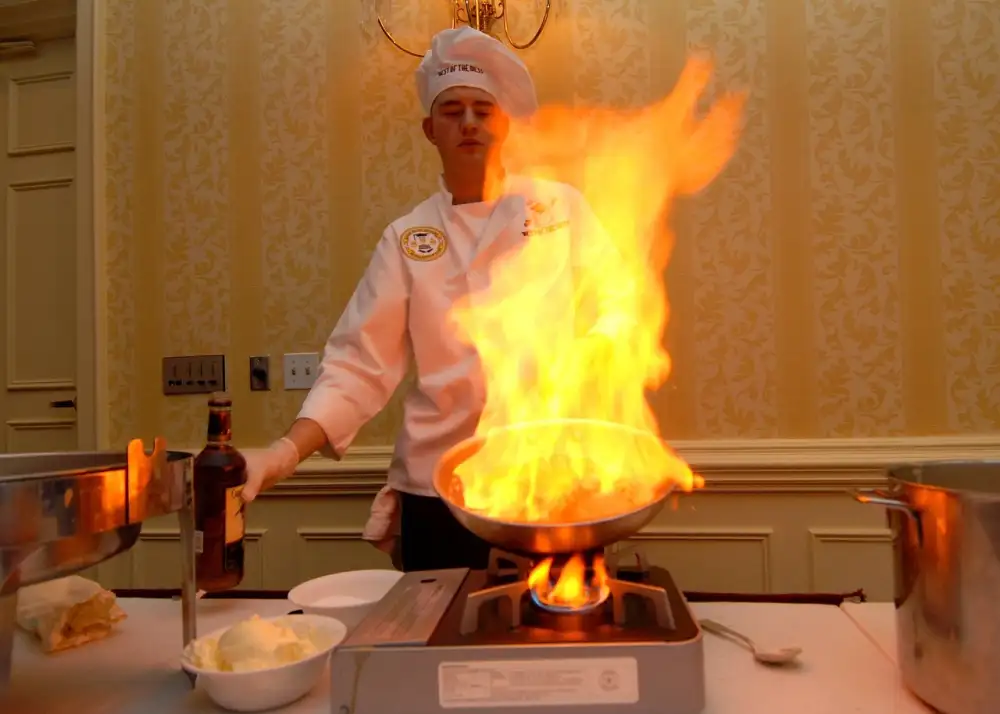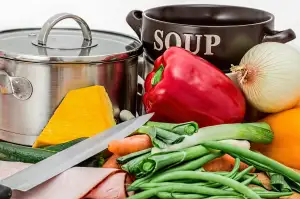Climbing the Culinary Ladder: Unveiling the Role of a Sous Chef in the Kitchen

- Responsibilities and duties of a sous chef
- Importance of teamwork and collaboration with the head chef
- Training and qualifications required to become a sous chef
- Career progression and opportunities for sous chefs
- Challenges and rewards of being a sous chef
- Famous sous chefs and their contributions to the culinary world
The role of a sous chef in a kitchen is often considered the backbone of culinary operations. As the second-in-command, the sous chef plays a vital role in ensuring the smooth functioning of the kitchen and maintaining high standards of food quality. With their expertise and experience, sous chefs are responsible for assisting the head chef in menu planning, food preparation, and overseeing kitchen staff. Their contribution is instrumental in creating memorable dining experiences for patrons and upholding the reputation of the establishment.
Responsibilities and duties of a sous chef
The sous chef is a key player in the kitchen, responsible for overseeing and managing various aspects of food preparation. Their duties include supervising the kitchen staff, ensuring food quality and consistency, creating and modifying recipes, and maintaining inventory. They also play a crucial role in menu planning, cost control, and ensuring compliance with health and safety regulations. With their expertise and attention to detail, sous chefs are instrumental in maintaining the high standards of a professional kitchen.
Importance of teamwork and collaboration with the head chef
The role of a sous chef in the kitchen goes beyond just cooking. One of the key aspects of their job is to collaborate and work closely with the head chef. Teamwork and collaboration are essential for creating a successful and efficient kitchen environment.
The sous chef acts as the right-hand person to the head chef, assisting in menu planning, recipe development, and overseeing the daily operations. They must communicate effectively with the head chef to ensure that their vision is executed flawlessly.
Collaboration between the sous chef and head chef is crucial when it comes to maintaining consistency in taste, presentation, and quality of dishes. They work together to establish standards and ensure that every plate leaving the kitchen meets those standards.
In addition, teamwork plays a vital role in managing a busy kitchen. The sous chef must coordinate with other members of the team, such as line cooks and prep cooks, to ensure smooth workflow and timely execution of orders. They delegate tasks, provide guidance, and motivate their team members to work efficiently.
Furthermore, collaboration extends beyond just working within the kitchen. Sous chefs often have to liaise with suppliers, interact with front-of-house staff, and even participate in events or catering services. Their ability to collaborate effectively helps maintain strong relationships both inside and outside of the kitchen.
Ultimately, teamwork and collaboration are essential for creating a harmonious working environment where everyone works towards a common goal – delivering exceptional food and dining experiences. The success of a kitchen relies heavily on the seamless coordination between the sous chef and head chef, making their partnership invaluable in achieving culinary excellence.
Training and qualifications required to become a sous chef
To become a sous chef, extensive training and qualifications are necessary. Most aspiring sous chefs start their culinary journey by attending a reputable culinary school or completing an apprenticeship program. These programs provide a solid foundation in cooking techniques, food safety, nutrition, and kitchen management.
In addition to formal education, practical experience is crucial. Sous chefs typically work their way up from entry-level positions in the kitchen, such as line cook or prep cook. This hands-on experience allows them to develop essential skills like knife handling, recipe execution, and time management.
Furthermore, sous chefs must possess strong leadership and communication skills. They should be able to effectively delegate tasks to the kitchen staff and maintain clear lines of communication with the head chef and other team members.
Continual learning is also important for a sous chef's professional growth. They should stay updated with current culinary trends and techniques through workshops, seminars, and industry certifications. These additional qualifications demonstrate dedication and commitment to the craft.
Overall, becoming a sous chef requires a combination of formal education, practical experience, leadership abilities, and ongoing professional development. With these qualifications in hand, aspiring sous chefs can embark on a rewarding career in the culinary world.
Career progression and opportunities for sous chefs
Career progression and opportunities for sous chefs can be quite promising. As a sous chef gains experience and hones their skills, they may have the chance to advance to higher positions within the kitchen hierarchy. This could include becoming an executive chef or even opening their own restaurant.
Sous chefs also have the opportunity to work in different types of kitchens, such as fine dining establishments, hotels, cruise ships, or catering companies. They can also explore opportunities in culinary education, food consulting, or food writing.
Additionally, sous chefs can choose to specialize in a particular cuisine or cooking technique, allowing them to become experts in their chosen field. This specialization can open doors to exciting opportunities like working in Michelin-starred restaurants or participating in prestigious culinary competitions.
The culinary industry is constantly evolving and offers ample room for growth and innovation. Sous chefs who are passionate about their craft and willing to continuously learn and adapt will find themselves well-positioned for success in this dynamic field.
Challenges and rewards of being a sous chef
Being a sous chef comes with its fair share of challenges and rewards. One of the biggest challenges is the high-pressure environment of the kitchen. Sous chefs are responsible for overseeing multiple stations, coordinating with other chefs, and ensuring that everything runs smoothly. This can be stressful and demanding, especially during busy periods.
However, the rewards of being a sous chef are equally fulfilling. The sense of accomplishment that comes from successfully executing a well-coordinated service is unmatched. Sous chefs also have the opportunity to showcase their creativity by developing new dishes and experimenting with flavors.
Another reward is the opportunity to learn from experienced chefs. Working closely with the head chef provides invaluable mentorship and allows sous chefs to expand their culinary knowledge and skills. Additionally, being part of a team that works together towards a common goal fosters camaraderie and creates a supportive work environment.
Overall, being a sous chef requires dedication, hard work, and passion for food. While it may come with its fair share of challenges, the rewards make it all worthwhile for those who are passionate about pursuing a career in the culinary world.
Famous sous chefs and their contributions to the culinary world
Famous sous chefs have made significant contributions to the culinary world, showcasing their skills and creativity. One such notable figure is Eric Ripert, who worked as a sous chef under the renowned chef Joel Robuchon before becoming the executive chef of Le Bernardin in New York City. His dedication to seafood cuisine and impeccable techniques have earned him numerous accolades and Michelin stars.
Another famous sous chef is Christina Tosi, who worked alongside David Chang at Momofuku before establishing her own bakery empire, Milk Bar. Tosi's innovative approach to desserts and her use of nostalgic flavors have revolutionized the pastry scene.
Thomas Keller, known for his meticulous attention to detail, started his career as a sous chef at La Reserve in New York City. He later went on to open his own restaurants, including The French Laundry and Per Se, which are celebrated for their exquisite fine dining experiences.
These talented sous chefs have not only contributed to the success of their respective kitchens but have also left a lasting impact on the culinary industry through their unique styles and culinary innovations. Their achievements serve as inspiration for aspiring sous chefs looking to make their mark in the world of gastronomy.
In conclusion, the role of a sous chef is undeniably crucial in ensuring the smooth operation and success of a kitchen. Their responsibilities and duties, ranging from food preparation to managing the kitchen staff, play a vital role in maintaining high standards of quality and efficiency. The collaboration and teamwork between the sous chef and head chef are essential for creating harmonious working environments that result in exceptional culinary experiences. With the right training and qualifications, aspiring chefs can climb the culinary ladder to become sous chefs, opening up opportunities for career progression and growth. While being a sous chef comes with its challenges, such as long hours and high-pressure situations, it also offers immense rewards like creativity, skill development, and the satisfaction of contributing to memorable dining experiences. Throughout history, famous sous chefs have made significant contributions to the culinary world through their innovative techniques and unique flavors. Overall, a skilled sous chef is an invaluable asset to any kitchen, bringing expertise, passion, and dedication to create extraordinary gastronomic delights.
Published: 17. 11. 2023
Category: Food



